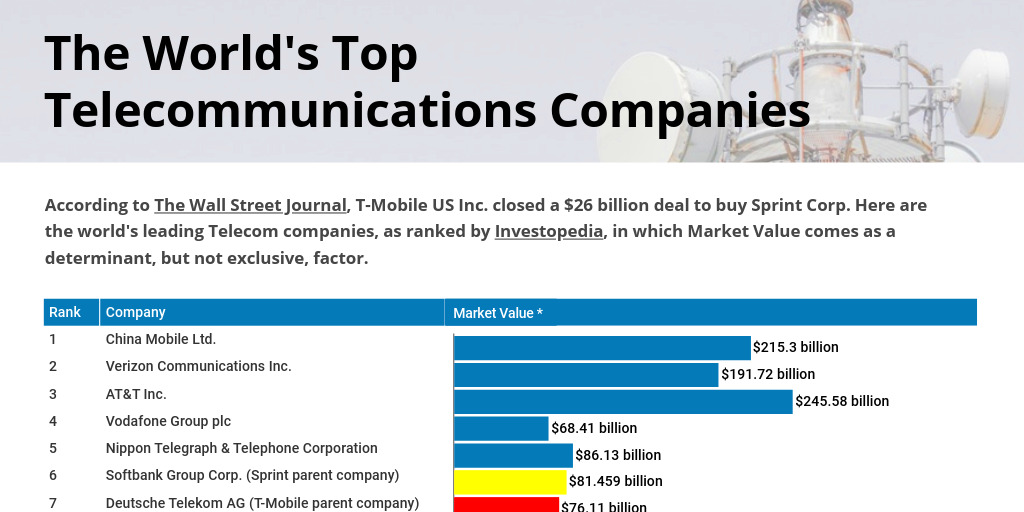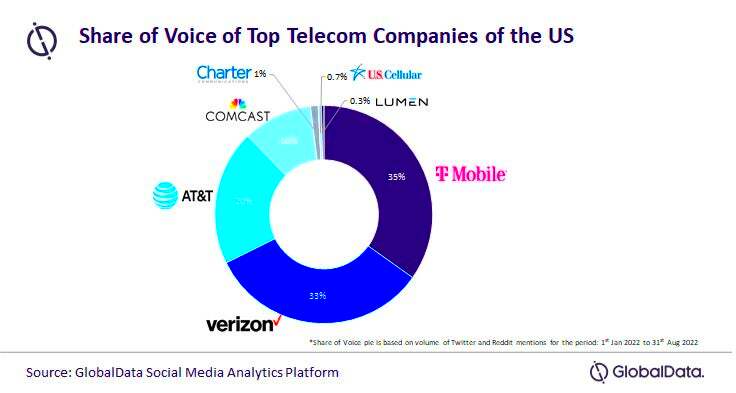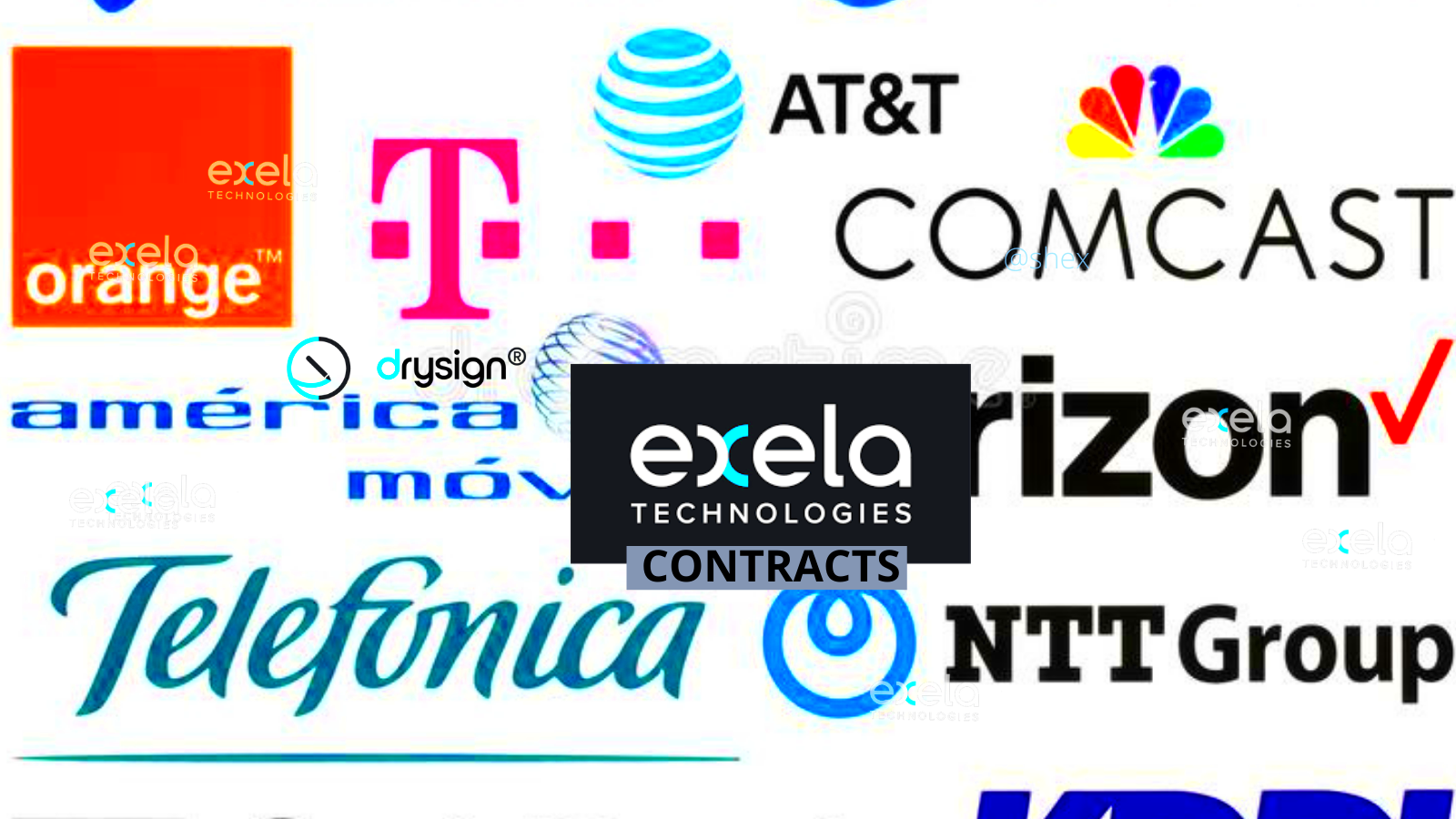The telecommunications sector plays a critical role in today's society by enabling people and companies all over the world to connect with each other. Across the United States, several organizations are making unremitting efforts to ensure that communication services are dependable.The industry has experienced tremendous growth as a result of increased demand for mobile devices and internet connectivity. This article will look into telecommunication
technology firms active in the US, highlighting their innovations, struggles and prospects.
Overview of the Telecommunications Industry

The far-reaching telecommunications field comprises various offerings that make it feasible for people to communicate across great distances. These are:
- Mobile Communication: This involves voice calls, texting, and data services provided by mobile network operators.
- Internet Services: Internet service providers (ISPs) offer broadband connections for homes and businesses.
- Cable and Satellite Services: These companies provide television services and additional communication options.
- Infrastructure Providers: These firms build and maintain the networks that enable telecommunications services.
Driven by technological advancement and shifting consumer requirements, the industry is always changing. Given that 5G
technology is becoming more widespread and fiber optic networks are expanding, the telecommunications landscape has never been more fluid.
Top Telecommunications Technology Companies in the USA

In the US telecommunications sector, there are several leading firms that are in control. A few major stakeholders are listed below:
| Company Name | Services Offered | Headquarters |
|---|
| Verizon | Wireless, internet, TV | New York, NY |
| AT&T | Wireless, internet, TV | Dallas, TX |
| T-Mobile | Wireless, internet | Bellevue, WA |
| Comcast | Cable, internet, phone | Philadelphia, PA |
| CenturyLink (Lumen Technologies) | Internet, phone, data | Monroe, LA |
The communication and information retrieval process is hugely affected by these firms. They keep modifying themselves to cope with the consumers’ tastes, and additionally, they are also spending in
technology advancement.
Innovations by Leading Telecommunications Companies

Lately, the major telecommunication companies have been driving innovation by constantly coming up with new technologies aimed at improving connectivity and service quality. Such advancements not only enhance the way users interact with services but also determine their shape in future. Enclosed below are a few significant areas in which these firms are making headway:
- 5G Technology: The rollout of 5G networks is transforming mobile communication with faster speeds, lower latency, and greater capacity. This technology enables applications like augmented reality, smart cities, and advanced IoT (Internet of Things) solutions.
- Fiber Optic Expansion: Many companies are investing in fiber optic networks to provide faster internet speeds and more reliable connections for homes and businesses. Fiber optics can handle more data than traditional copper lines, leading to improved service.
- Artificial Intelligence: AI is being used to enhance customer service through chatbots, optimize network management, and predict maintenance needs. This technology helps companies respond quickly to issues and improve user satisfaction.
- Cloud Services: Telecom companies are increasingly offering cloud-based solutions, allowing businesses to scale their operations more efficiently. These services facilitate data storage, collaboration, and remote work.
Adopting these advancements in
technology and systems telecommunications firms are enhancing performance but additionally boosting productivity and growth across different walks of life.
Challenges Facing the Telecommunications Industry
Even though telecommunications sector is fast-paced, it encounters numerous barriers that may influence its expansion and service provision. Some of these major challenges include:
- Regulatory Issues: Telecommunications companies must navigate complex regulations at the federal, state, and local levels. Changes in regulations can affect pricing, service availability, and operational strategies.
- Infrastructure Investment: Upgrading existing infrastructure to support new technologies like 5G requires significant capital investment. Companies need to balance these costs with competitive pricing and profitability.
- Cybersecurity Threats: As networks become more interconnected, the risk of cyberattacks increases. Protecting sensitive customer data and maintaining service integrity is crucial for companies.
- Market Competition: The telecommunications market is highly competitive, with new entrants and established players vying for market share. Companies must continually innovate to stay relevant.
In order to face these obstacles, it is necessary to have a well-planned strategy, invest in
technology and work hand-in-hand with the regulators as well as the players in that particular industry.
Future Trends in Telecommunications Technology
The future of the telecommunications industry is being shaped by several trends as it evolves. According to these trends, we shall interact with technology and communicate in future ways that more suits them. Let us look at some vital upcoming trends:
- Increased Adoption of 5G: The deployment of 5G networks will continue to expand, providing faster speeds and supporting new applications like autonomous vehicles and smart devices.
- Rise of IoT: The Internet of Things will become more prevalent, connecting everyday devices to the internet. This trend will enhance automation and improve efficiency in homes and industries.
- Enhanced Customer Experience: Companies will focus on using AI and data analytics to personalize customer interactions and improve service delivery. Enhanced customer experience will be a key differentiator.
- Sustainability Initiatives: There will be a growing emphasis on sustainable practices within the telecommunications industry, including energy-efficient networks and responsible e-waste management.
- Integration of Virtual Reality: Virtual and augmented reality applications will become more mainstream, particularly in areas like training, entertainment, and remote work.
This way, telecom firms will always stay at the top of their game in terms of internet access. They will achieve this by being up to date with trends which enable them to serve customers as well as corporates who keep changing their preferences.
Impact of Telecommunications on Society
Societal transformation has been engendered by way of telecommunications ventures that determine the means we communicate. It also affects our ways of working and living. A far-reaching impact in every sphere of daily existence has been established. Telecommunications affects us in many fundamental ways:
- Enhanced Communication: Telecommunications allows people to connect instantly, regardless of distance. Whether through phone calls, video conferencing, or messaging apps, staying in touch has never been easier.
- Economic Growth: The telecommunications industry creates jobs and drives economic development. Businesses can operate more efficiently with reliable communication tools, leading to increased productivity.
- Access to Information: With the internet and mobile devices, people have access to vast amounts of information at their fingertips. This democratization of knowledge empowers individuals and promotes lifelong learning.
- Remote Work Opportunities: Telecommunications technology has enabled the rise of remote work. Employees can collaborate from anywhere, providing flexibility and work-life balance.
- Social Connectivity: Social media platforms allow individuals to share experiences, build communities, and foster connections that transcend geographical boundaries.
In a nutshell, telecommunications has transformed our ways of communication, our work activities and the way we receive information, hence forming the foundation of present day civilization.
Frequently Asked Questions
Numerous individuals possess inquiries regarding telecommunication technology and the influence it has. Therefore, provided below are several frequently asked questions together with their responses:
What is telecommunications?
- Telecommunications refers to the transmission of information over distances for communication. This includes phone calls, internet services, and broadcasting.
How does 5G technology work?
- 5G technology uses higher frequency bands to provide faster data speeds and lower latency. It supports a larger number of devices and enables advanced applications like IoT and autonomous vehicles.
What are the benefits of fiber optics?
- Fiber optic cables offer faster internet speeds, greater bandwidth, and improved reliability compared to traditional copper wires. They can handle more data and provide better service for users.
How does telecommunications affect the economy?
- Telecommunications supports economic growth by enabling businesses to communicate efficiently, reach new markets, and enhance productivity. It also creates jobs in various sectors.
What are the challenges in the telecommunications industry?
- Challenges include regulatory hurdles, infrastructure investment, cybersecurity threats, and intense market competition. Companies must address these issues to succeed.
Conclusion on Telecommunications Technology Companies
Lastly, technology players in the realm of telecommunications are key in molding the current earth we have. They spur invention, improve on communication and subsequently facilitate progress in a country’s economy. In terms of what is likely to unfold in future, it is apparent that these firms will keep changing through embracing new possibilities while confronting different challenges.The likelihood for more transformation remains huge with upcoming developments such as 5G, AI and IoT.As customers, we receive the service from these corporations and thus remain needful of knowing their discoveries and how they influence us daily. For sure, telecommunications will maintain its important role in world economics by connecting everyone together in ways we cannot even think of.
 The far-reaching telecommunications field comprises various offerings that make it feasible for people to communicate across great distances. These are:
The far-reaching telecommunications field comprises various offerings that make it feasible for people to communicate across great distances. These are: In the US telecommunications sector, there are several leading firms that are in control. A few major stakeholders are listed below:
In the US telecommunications sector, there are several leading firms that are in control. A few major stakeholders are listed below: Lately, the major telecommunication companies have been driving innovation by constantly coming up with new technologies aimed at improving connectivity and service quality. Such advancements not only enhance the way users interact with services but also determine their shape in future. Enclosed below are a few significant areas in which these firms are making headway:
Lately, the major telecommunication companies have been driving innovation by constantly coming up with new technologies aimed at improving connectivity and service quality. Such advancements not only enhance the way users interact with services but also determine their shape in future. Enclosed below are a few significant areas in which these firms are making headway:
 admin
admin








